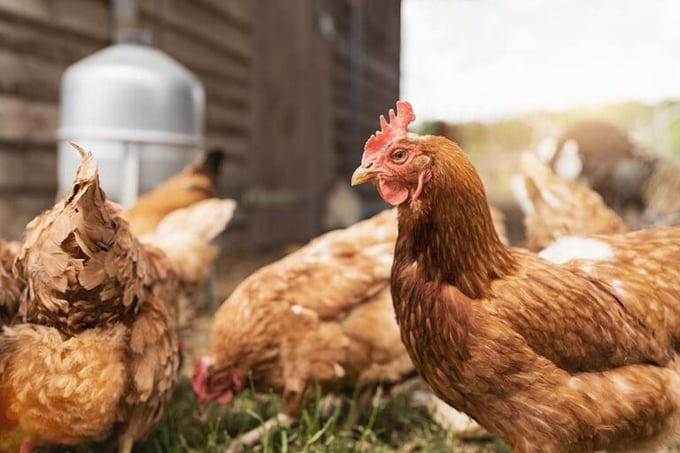November 23, 2025 | 23:09 GMT +7
November 23, 2025 | 23:09 GMT +7
Hotline: 0913.378.918
November 23, 2025 | 23:09 GMT +7
Hotline: 0913.378.918

The combination of providing both verandas and natural daylight is designed to significantly improve bird welfare. Photo: Canva
In response to feedback from members and the wider industry, RSPCA Assured has agreed to delay implementation of its latest planshttps://www.poultryworld.net/poultry/layers/amendments-made-to-rspcas-new-laying-hen-welfare-standards/ for 3 months, meaning members can continue to use the current version of the standards, published in 2017, until 1 August 2024.
The combination of providing both verandas and natural daylight is designed to significantly improve bird welfare, according to the charity, as it will help reduce feather pecking and keel bone fractures – 2 of the most challenging welfare issues for hens in egg production. Natural daylight also provides an appropriate visual environment for free-range birds when range access is restricted, for example, during a housing order.
Kelly Grellier, RSPCA Assured interim chief operations officer, said the charity believed the new welfare standards would help deliver significant improvements to the lives of hens but accepted that it was important to take time to listen to industry concerns: “We recognise the importance of taking the appropriate time to listen to our members and the industry so we can provide additional support and help them achieve these challenging standards.”
During the pause, RSPCA Assured will also share practical case studies from UK farms to provide guidance and real-life examples of how the standards can be applied and met. And the certification scheme body added that a new approach to how it worked with members and the wider industry throughout the entire standards communication and implementation process was also being developed.
“The standards will not be undergoing any further amendments. This additional grace period will allow us time to fully honour the commitments we made to our members and the wider industry during our meeting on 22 January – and find a way to move forward positively and together.”
The amendments included extending the timeline for natural daylight by 1 year to 1 January 2031, and removing the veranda requirement for refurbished and new member free-range systems. While verandas were never required for existing free-range members, the RSPCA will be conducting a thorough review into the practicalities of achieving this in the future.
(PW)

(VAN) In Brazil, FAO unveiled a series of reports and initiatives showing how sustainable agrifood systems are a solution to the climate crisis.

(VAN) With names like neodymium and dysprosium, rare-earth elements sound exotic — and their perceived scarcity has only added to the mystique.

(VAN) In a new study published in Trends in Biotechnology, researchers used a gene-editing technology called CRISPR to increase a fungus's production efficiency and cut its production-related environmental impact by as much as 61%- all without adding any foreign DNA.

(VAN) A top official in Beijing’s Cop delegation says China is committed to clean energy – but US’s absence is a problem.

(VAN) The Bangsamoro region’s inflation rate rose slightly to –1.3 percent in October 2025 from –1.5 percent in September, the Philippine Statistics Authority (PSA-BARMM) reported.

(VAN) FAO-led report says protecting and restoring forests is crucial to boosting climate-resilient agriculture, rural livelihoods and global food and water security.

(VAN) Flagship partnership secures additional GBP 16.9 million to strengthen forest monitoring, transparency and country support to 2030.